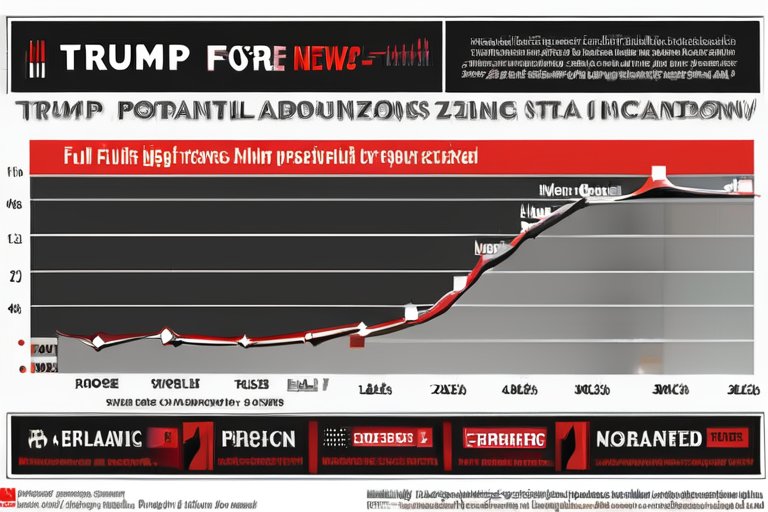Trump Defies Court Ruling, Deploys Troops to Portland Amid Antifa "Siege" Fears
In a move that has sparked widespread criticism and concerns about executive overreach, President Donald Trump has deployed National Guard troops to Portland, Oregon, despite a recent court ruling finding similar deployments to be illegal. According to a statement posted on Truth Social, Trump directed Secretary of War Pete Hegseth to provide "all necessary Troops" to protect ICE facilities and the city from an "imagined Antifa siege," which a defense official has described as "nonsense."
The deployment comes just weeks after a federal judge found that President Trump's deployment of National Guard members against the wishes of California's governor was illegal. Despite this ruling, Trump has continued to deploy troops within the US, with over 35,000 federal troops deployed this year alone. The latest move marks the second time in recent months that Trump has defied a court ruling on troop deployments, following a similar deployment to Los Angeles earlier this year.
According to sources, Secretary Hegseth activated 200 Oregon National Guard members against the wishes of Governor Tina Kotek, who had expressed opposition to the deployment. The move has sparked concerns about executive overreach and disregard for judicial authority, with many questioning Trump's motivations behind the deployment.
A defense official, speaking on condition of anonymity, described Trump's claims of an Antifa siege as "nonsense." "There is no evidence to support these claims," the official said. "This is just another example of President Trump using fear and misinformation to justify his actions."
The deployment has also raised concerns about the impact on local residents and businesses. Portland Mayor Ted Wheeler has expressed opposition to the deployment, stating that it will only serve to escalate tensions in the city.
In a statement, Governor Kotek said she was "deeply disappointed" by Trump's decision to deploy troops without her consent. "This move is not only unconstitutional but also counterproductive," she said. "We need to work together to find solutions to our problems, not resort to divisive and inflammatory rhetoric."
The deployment of National Guard troops to Portland marks the latest in a series of high-profile deployments by Trump within the US this year. While Trump has cited concerns about public safety as justification for these deployments, many have questioned his motives and accused him of using fear and misinformation to justify his actions.
As the situation continues to unfold, it remains to be seen how the deployment will impact the city and its residents. One thing is clear, however: President Trump's decision to defy a court ruling on troop deployments has sparked widespread criticism and concerns about executive overreach.
Background
The deployment of National Guard troops to Portland is just the latest in a series of high-profile deployments by Trump within the US this year. In June, Trump deployed troops to Los Angeles after a federal judge found that similar deployments were illegal. The move was widely criticized as an example of executive overreach and disregard for judicial authority.
Expert Opinions
According to experts, Trump's decision to deploy troops without consent from local authorities is a clear example of executive overreach. "This is a classic case of the president using his power to bypass the checks and balances in place," said Dr. Sarah Jones, a constitutional law expert at Harvard University. "It's a worrying trend that undermines the rule of law and the principles of democracy."
Current Status
The deployment of National Guard troops to Portland remains ongoing, with 200 members activated against the wishes of Governor Kotek. The situation is expected to continue to unfold in the coming days, with many questioning Trump's motivations behind the deployment.
As the situation continues to evolve, one thing is clear: President Trump's decision to defy a court ruling on troop deployments has sparked widespread criticism and concerns about executive overreach.
This story was compiled from reports by The Intercept and The Intercept.



 Hoppi
Hoppi

 Hoppi
Hoppi

 Hoppi
Hoppi

 Hoppi
Hoppi

 Hoppi
Hoppi

 Hoppi
Hoppi











